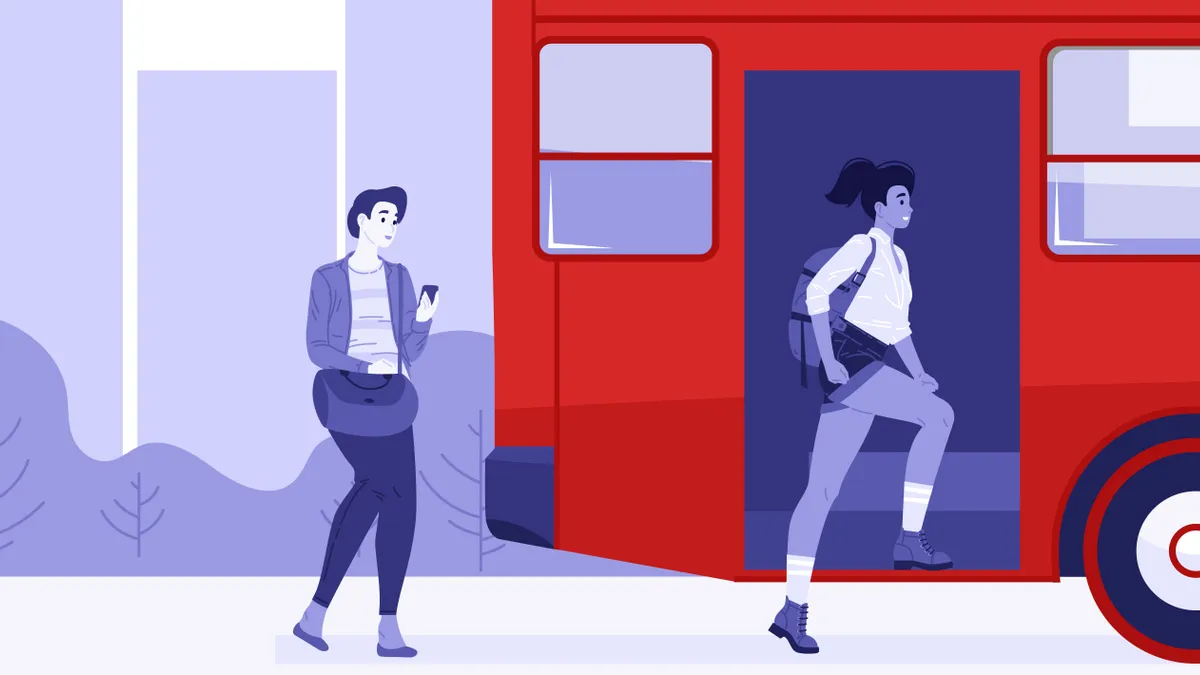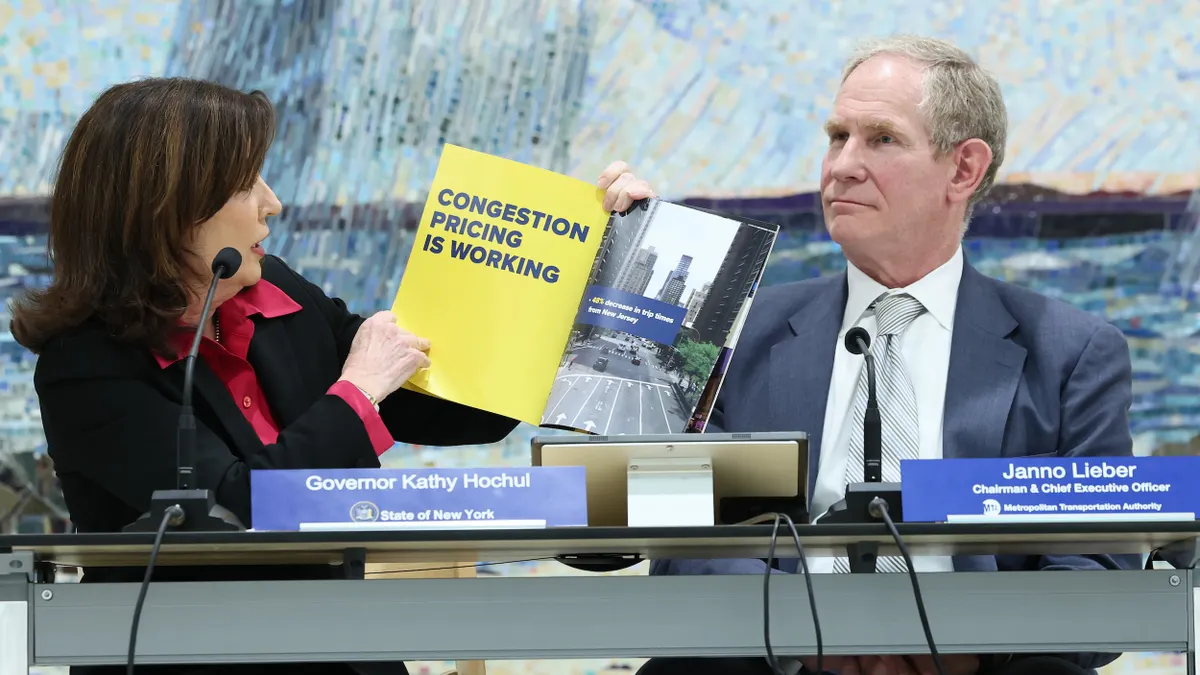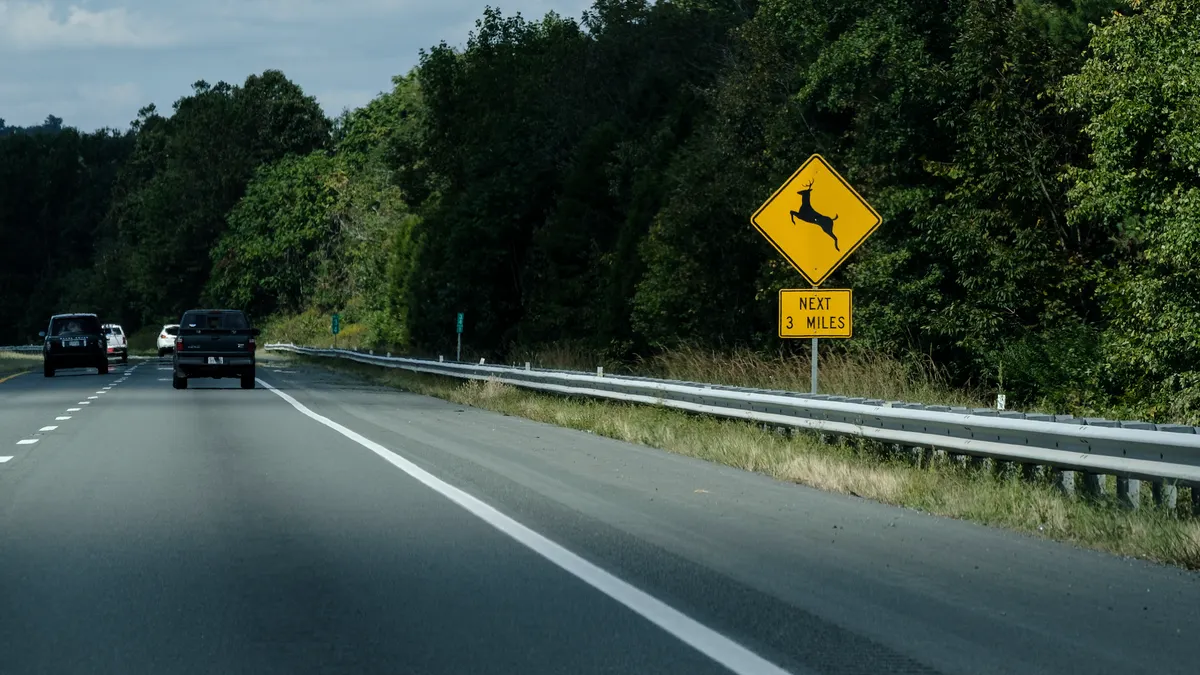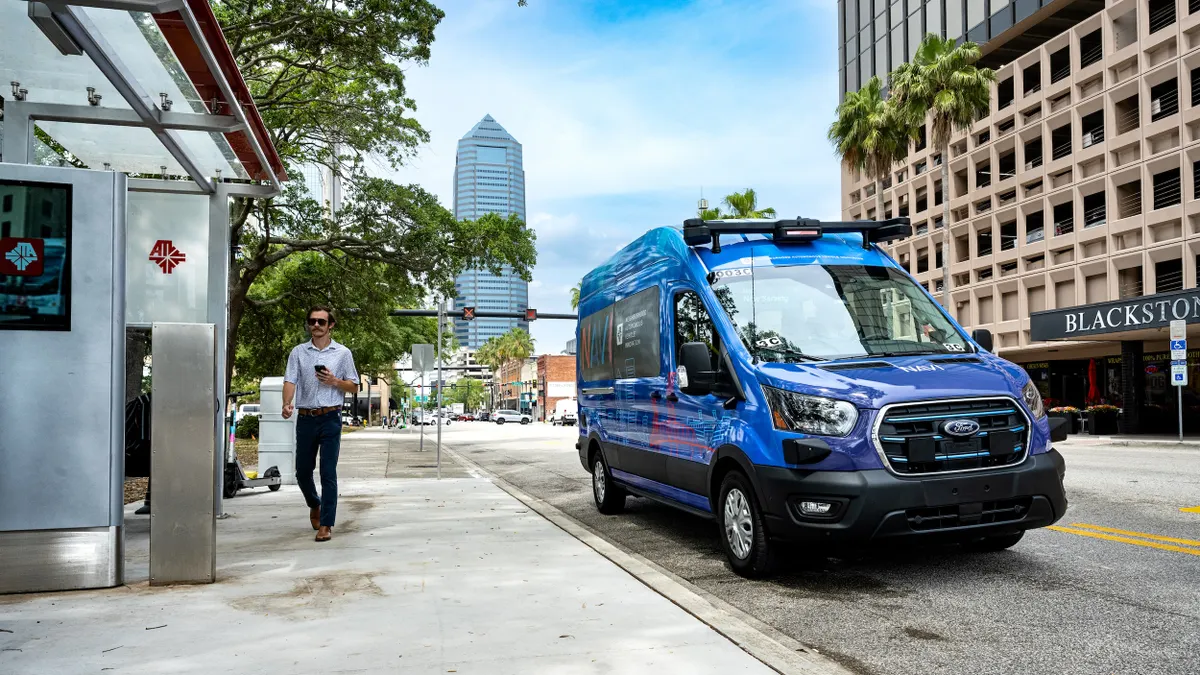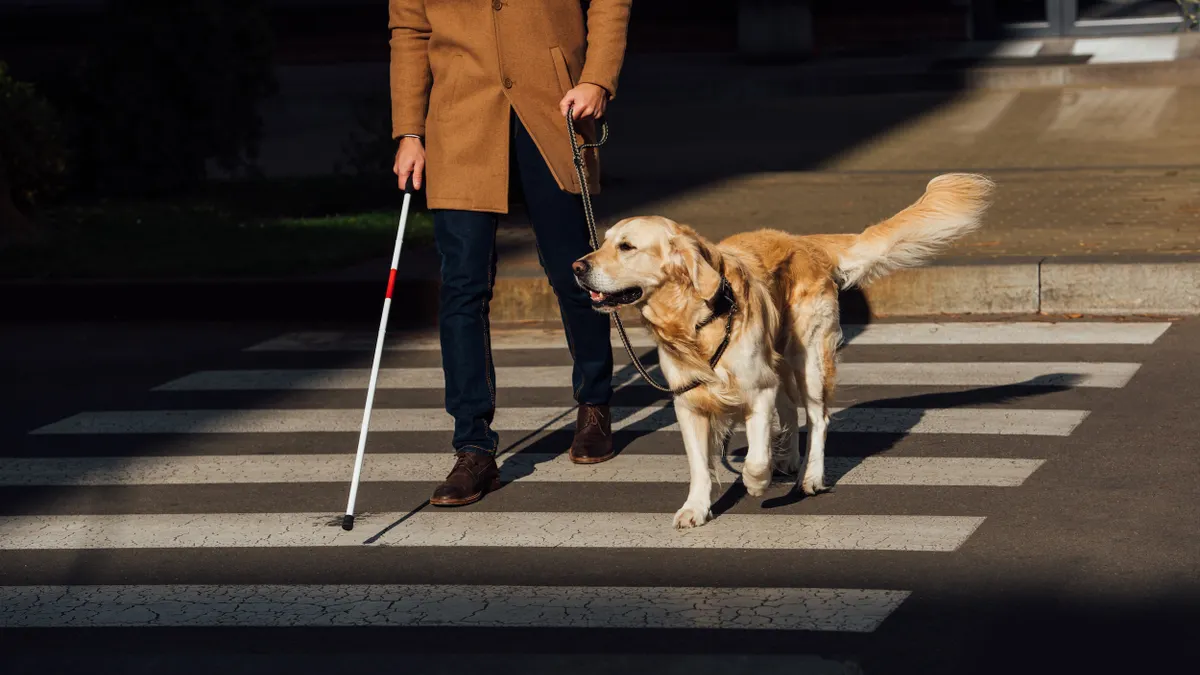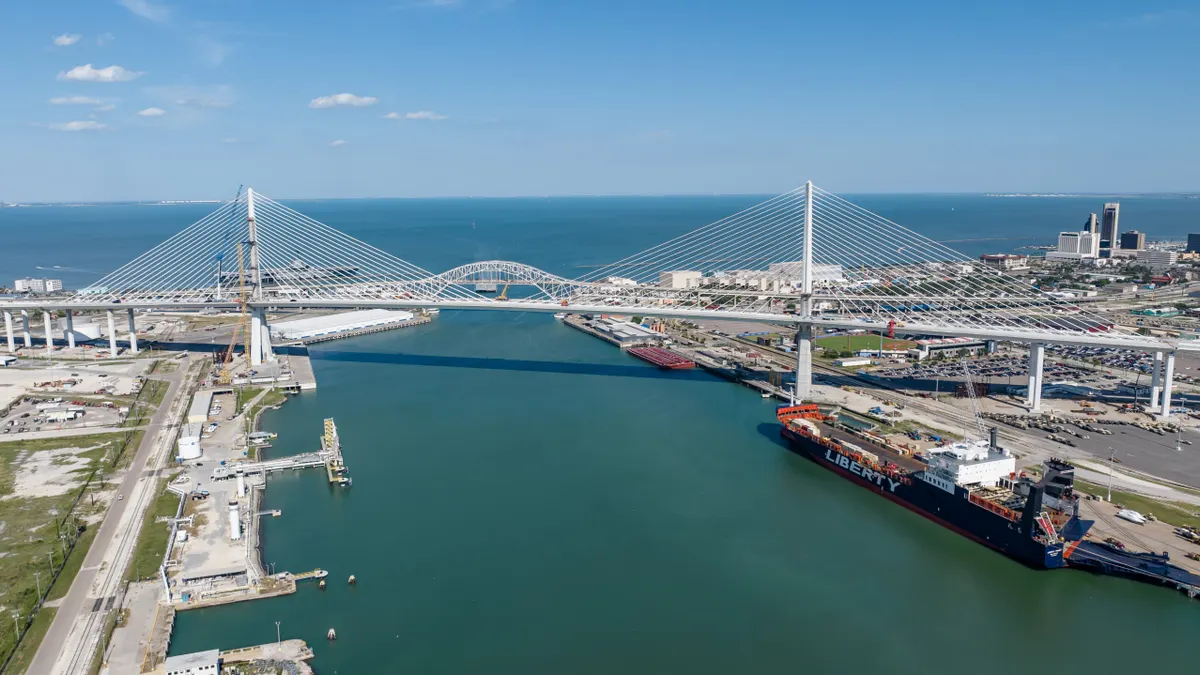New York City bus driver Monique Rondon was spat on by a passenger in 2012, so viciously that it covered her uniform and face. Rondon thought about quitting after the incident, spending 19 months off work to recover and attend therapy.
It wasn't the first assault for Rondon, who has driven for the Metropolitan Transportation Authority (MTA) since 1999. In fact, it was her fourth: she was once attacked by a passenger who refused to move a baby stroller from the aisle; once assaulted by a man pretending to be an MTA employee; and also once had hot coffee thrown over her after accidentally missing a stop.
Rondon, who is also a shop steward for the Transport Workers Union's (TWU) Local 100 in New York City, said the constant threat of physical and verbal assault makes many operators scared to come to work.
"There's not much we can do," Rondon said. "You either sit there and take it, or you try to fight back. And I know I'm not going to lose my life, so I won't fight back. I won't lose my life, because I want to get home to my family. I just get beat up, if that's what it calls for."
Rondon’s experience is not an isolated one. Reports from around the country paint a troubling picture of assault against transit workers including robbery; being stabbed repeatedly with a pen; or being attacked after stepping in to try and prevent a fight between two passengers. Attacks have also happened after operators confront passengers attempting to evade paying the fare.
Some attacks have even ended in tragedy. In 2019, Thomas Dunn, a bus driver in Tampa, FL, had his throat slit by a passenger named Justin McGriff, who was eventually ruled incompetent to stand trial. Before dying, Dunn pulled to the side of the road to protect other passengers and road users.
"It's a massive issue, and it's a growing problem," said Greg Regan, secretary-treasurer at Transportation Trades Department, AFL-CIO (TTD). "[I] don't know what's fueling it. But the direction of anger or frustration at people who are doing their jobs and operating our transit systems is completely unacceptable."
The spate of assaults can be blamed on societal factors, according to Rondon, including the lack of mental health treatment available for troubled riders and the impact of social services not being effectively delivered.
"It comes to the point where so many operators, they don't even want to say good morning."

Monique Rondon
Bus driver, Metropolitan Transportation Authority, New York City
"I can tell you, there's a lot of mental illness out there," she said. "There are a lot of people that can't afford medication or are denied medication. There's a lot of angry people… But we tend to be a target. We're a sitting duck."
Transport Workers Union of America (TWU) President John Samuelsen said local agencies and governments must shoulder some responsibility, as public transportation has been underfunded for years and too reliant on fares for operations.
"You have a situation where service delivery in public transit systems in America has been plummeting both in quality of service and quantity of service," Samuelsen said. "And what that leads to is a frustrated ridership. The uniformed bus operator then becomes the target."
Labor leaders say the tension creates an atmosphere where some workers want to be taken off the frontlines to avoid personal risk. Amalgamated Transit Union (ATU) International President John Costa said he's even seen "grown men crying, asking if they can get off the bus and be put in any job or maintenance position" due to the threats they've faced.
Customer service can suffer too, Rondon said, as operators are nervous to engage with anyone who may assault them.
"They don't want to speak; they just want to drive and go home, and they want to make it home safely," she said. "This is a huge problem, because I don't believe we can give effective service without saying anything. It comes to the point where so many operators, they don't even want to say good morning."
Assaults in the COVID era
The coronavirus pandemic appears to have exacerbated the risk of assault for transit operators, especially when it comes to enforcing mask mandates. Many transit agencies have made mask-wearing a requirement for riders per an executive order from President Biden, and while riders often comply, others don't — and those trying to enforce such mandates have faced consequences.
In July 2020, a Lubbock, TX, bus driver was left bloodied by a passenger who beat the driver with a piece of wood for asking him to wear a mask. Meanwhile, an MTA bus driver had hot coffee thrown on them after a similar request. In San Francisco, a bus driver claims he and Asian passengers have faced racist abuse and violence for telling people to wear masks.
"Imagine the pressure bus operators are under," Samuelsen said. "They're already in a situation where they get assaulted, then COVID-19 comes around, they get on the bus in the morning, they're not sure whether they're going to contract COVID-19. And then riders get on the bus … the bus operator is sometimes required to tell somebody to get off the bus for not wearing a mask, and that person goes ballistic because they don't give a rat's ass about anybody other than themselves."
Samuelsen said operators have continually been forced to navigate a "high tension wire" during the pandemic.
Ismael Rivera, a member of ATU Local 1596 and a bus driver for Lynx in Orlando, FL, testified before the House Committee on Transportation and Infrastructure about the risk of operators contracting the infection; needing to serve as the "mask police" for passengers; and struggling to enforce social distancing due to space constraints on the bus.
Rivera detailed some solutions that reduced driver conflicts, including back-door boarding and waiving fares. Some agencies have also installed polycarbonate or plexiglass shields, which serve the dual purpose of protecting drivers from airborne particles but also can prevent assaults. Rivera shared the story of a man who shot at a St. Louis MetroBus driver in May 2020 for asking him to wear a face mask, noting the driver was protected by that shield. Yet some transit agencies have eased off on those protections, Rivera said, "exposing us to the virus and angry people."
ATU's Costa said another solution could be to redesign buses and use models similar to ones in Europe, which have a robust driver partition controlled by a button — though he acknowledged cost may be a barrier.
"Half the industry needs to look at a new design, and it's out there," Costa said. "I don't know what the problem is in the United States, why we can't adapt to it or build one. Is it all about money and profit, that they don't want to spend the extra money on the equipment?"
Mediation through legislation
Lawmakers have been working for years to get the issue of assaults under control. In 2019, Rep. Grace Napolitano, D-CA; Rep. John Katko, R-NY; and U.S. Sen. Chris Van Hollen, D-MD, jointly introduced the bicameral Transit Workers and Pedestrians Protection Act, a bill that has received the support of TTD and others in organized labor.
That legislation would give transit agencies two years to develop Bus Operations Safety Risk Reduction Programs and Rail Operations Worker Assault Risk Reduction Programs, with oversight from the U.S. Department of Transportation (USDOT). It would provide $25 million a year over five years to pay for those programs, as well as de-escalation training for drivers and barriers to stop assaults.
The proposed law would also require agencies to report all assaults on transit workers to USDOT’s National Transit Database (NTD), which is typically used to track agencies’ finances, traffic crashes, medical issues and the like.
The Senate bill was discussed during a hearing last year before the Committee on Banking, Housing and Urban Affairs, while the House bill did not get debated. It would need reintroducing in the new session of Congress; spokespeople for Napolitano and Van Hollen did not respond to requests for comment on whether it will return.
President Biden signaled his support for the legislation in a town hall meeting last year with ATU members, and pledged to "fight" to get it passed.
"The bus operator is sometimes required to tell somebody to get off the bus for not wearing a mask, and that person goes ballistic because they don't give a rat's ass about anybody other than themselves."

John Samuelsen
President, Transport Workers Union of America
Also in 2019, the Federal Transit Administration (FTA) published a Federal Register Notice in May 2019 alerting transit agencies to address the risk of transit operator assault under the Public Transportation Agency Safety Plan (PTASP) regulation contained in the Fixing America's Surface Transportation (FAST) Act.
FTA gave agencies this task in consideration of "differences in operating environments" and other factors that vary by agency, yet TTD's Regan said success won't be seen without the leadership of the federal government.
"As with a lot of things, federal leadership is important, because you need to have a baseline standard, you need to have requirements that are enforceable across the board," Regan said. "With anything like this, it's going to require leadership to actually meet the needs and implement safety protocols at individual agencies."
President Biden's administration appears to take the issue of driver protections seriously. During his nomination hearing for Transportation Secretary, Pete Buttigieg signaled willingness to protect transportation workers, both from COVID-19 and other incidents.
But while awaiting national movement, states may need to act. In New Jersey, lawmakers are currently debating the New Jersey Transit Bus Riders' Bill of Rights, which has been referred to the Assembly’s Transportation and Independent Authorities Committee.
Among other provisions designed to improve service on the state-run NJ Transit, the legislation says the agency will provide proper safety equipment and training to protect operators and passengers.
"We have seen a rise in attacks on the bus operators as well as train operators, and some of it's a level of frustration from the passengers," said Assemblyman Daniel Benson, one of the bill's sponsors. "But also, I think it's the times we live in, so we have to do more to both provide training and backup for our transit employees so that they feel safe at all time."
Benson said he hopes to have the bill voted on by spring, ahead of budget season in the state legislature.



